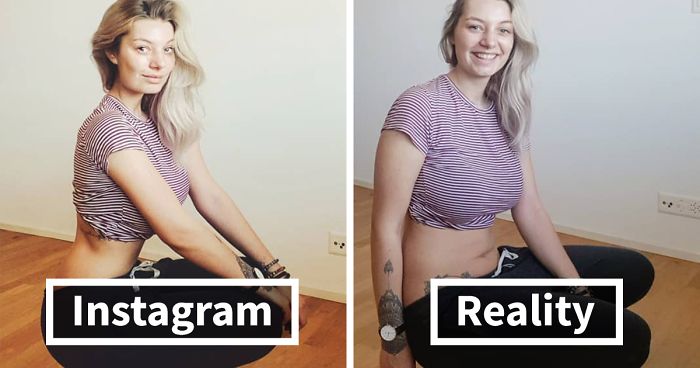In an era dominated by social media, Instagram stands out as a platform where the carefully crafted art of perfection reigns supreme. Filters, lighting, makeup, and clever angles combine to create an idealized version of reality. However, behind the glossy façade lies a stark contrast to real-life experiences.

One of the most prominent aspects of Instagram’s deception is its presentation of beauty. With a myriad of filters, editing tools, and strategic lighting, anyone can enhance their appearance to appear flawless. From smooth, blemish-free skin to perfectly sculpted bodies, Instagram feeds are filled with images that depict an unattainable standard of beauty.

It’s important to recognize that these images are often far from reality. Behind the scenes, real people may struggle with insecurities and imperfections, just like everyone else.

Instagram feeds are filled with immaculately made-up faces that seem to radiate beauty effortlessly. However, it’s essential to acknowledge the transformative power of makeup.

Skillful use of cosmetics can conceal blemishes, enhance features, and create illusions of perfection. What appears flawless on Instagram may require hours of work and skillful artistry.

Similarly, strategic camera angles play a vital role in capturing the best version of oneself, concealing flaws and emphasizing desirable aspects.

Instagram thrives on the art of curating moments. Pictures shared on the platform often depict carefully selected highlights from one’s life, presenting an idyllic and envy-inducing narrative. Take, for example, the portrayal of parenthood.

Instagram shows parents and their children dressed in coordinated outfits, showcasing picture-perfect moments of joy and harmony. However, the reality of parenting is much messier. Behind the scenes, parents face sleepless nights, tantrums, and countless challenges. These curated moments are only a fraction of the whole picture.

The carefully curated nature of Instagram can take a toll on users’ mental health. Constant exposure to the idealized versions of others’ lives can lead to a distorted sense of reality and a phenomenon known as the Fear of Missing Out (FOMO). Seeing people’s seemingly perfect lives can create feelings of inadequacy and self-doubt. It’s crucial to remind ourselves that what we see on Instagram is not the whole truth, but a carefully selected fragment.

It’s time to peel back the layers of deception and embrace authenticity. Instead of striving for an unattainable standard of perfection, let’s focus on self-acceptance and celebrating the imperfections that make us unique. By being honest and genuine on social media, we can contribute to a more realistic portrayal of life, breaking the cycle of comparison and fostering a healthier online community.


